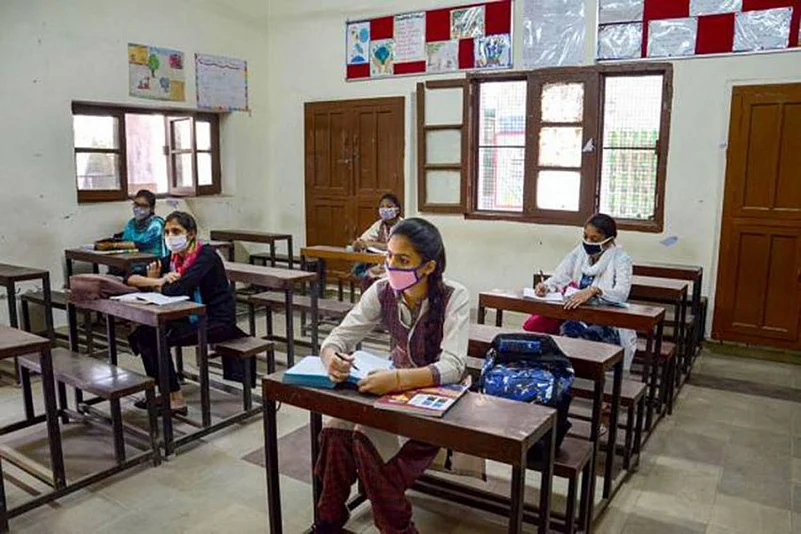In order to compensate for the losses students faced due to Covid-19 pandemic, the Education Ministry has asked the states to conduct a door-to-door survey to identify out-of-school children and prepare an action plan for their enrolment.
The ministry has also recommended relaxing detention norms to prevent drop-outs this year as well as a slew of measures to address learning loss due to the coronavirus-induced shutdown of schools.
The steps have been taken to mitigate the impact of the pandemic, especially on migrants, according to officials.
The move is particularly aimed at identification, admission and continued education of migrant children who have been affected during the pandemic, they said.
"In order to mitigate the impact of challenges thrown by the COVID-19 pandemic for out of school children, it was felt necessary for every state and UT to devise a proper strategy for preventing increased dropouts, lower enrolments, loss of learning and deterioration in the gains made in providing universal access, quality and equity in the recent years," a senior ministry official said.
"The states and UTs have been advised to carry out proper identification of Out-of-School Children (OoSC) for 6 to 18 years age group through a comprehensive door-to-door survey and prepare an action plan for their enrolment," the official added.
The ministry has also issued guidelines for offering support to students during the closure of schools and when they reopen.
"To ensure that school-going children have access to education with quality and equity and to minimize the impact of the pandemic on school education across the country, the Ministry of Education has prepared and issued detailed guidelines on steps to be taken by the States and UTs during school closure and when the schools reopen," the official said.
Exploring the option of classroom-on-wheels and classes in small groups at the village level, increasing the access of children to online and digital resources, use of TV and radio to reduce learning losses and ensuring easy and timely access to the provisions of uniforms, textbooks and mid-day meals are among the recommendations made by the ministry for student support during the closure of schools.
Similarly, the guidelines for student support when schools reopen after prolonged closure include preparation and running of school readiness modules and bridge course for the initial period so that they can adjust to the school environment and do not feel stressed or left-out.
Identifying students across different grades based on their learning levels and relaxing detention norms to prevent drop out this year have also been recommended.
The ministry has also suggested encouraging children to read books beyond the syllabus and indulge in creative writing and problem solving for ensuring reading with comprehension and numeracy skills.
Large-scale remedial programmes and learning enhancement programmes should be held to mitigate learning loss and inequality, it recommended.
(With PTI inputs.)


























